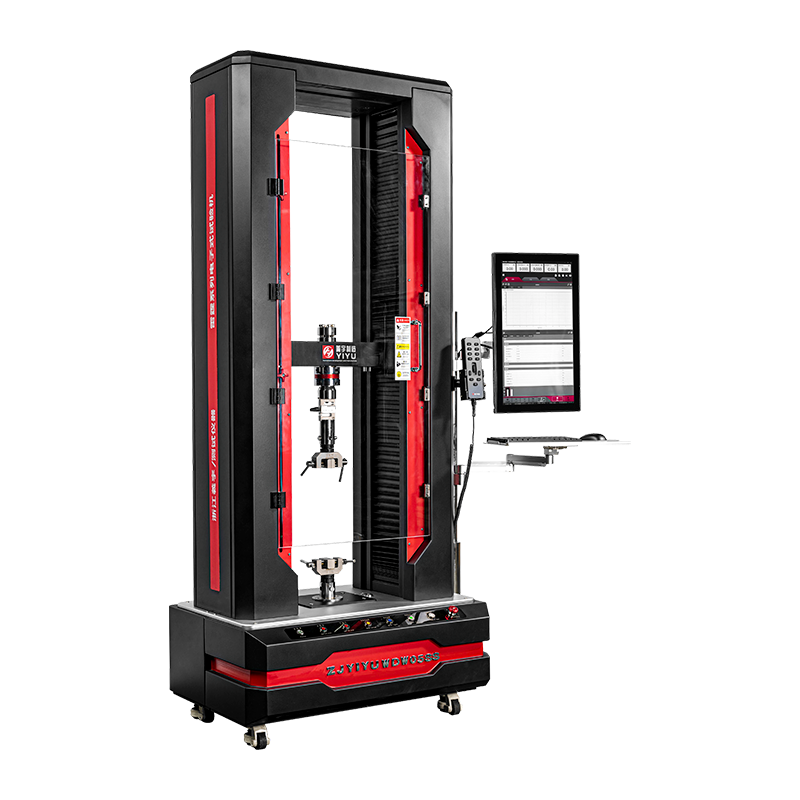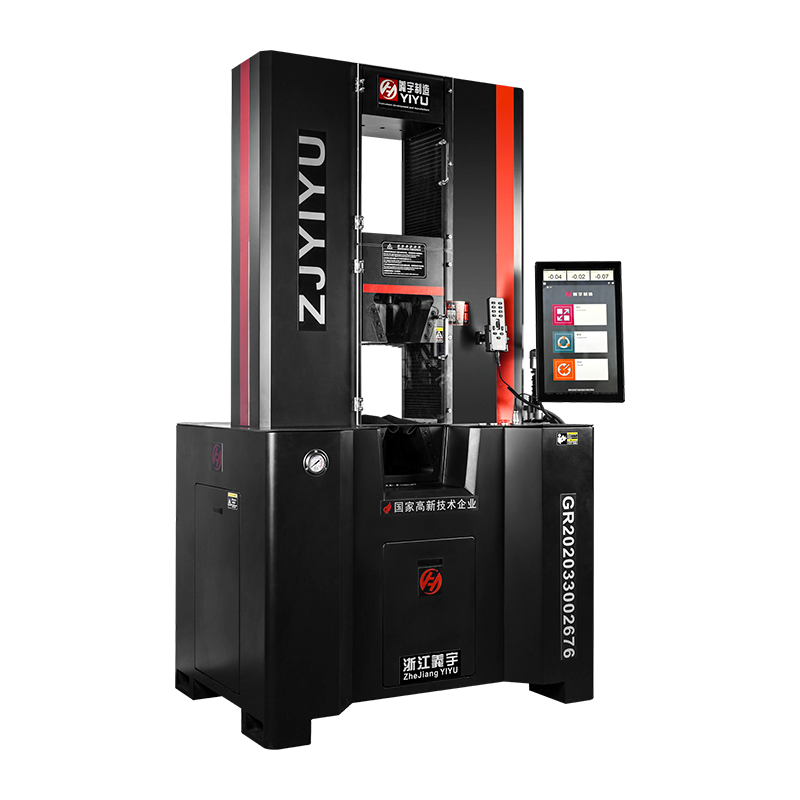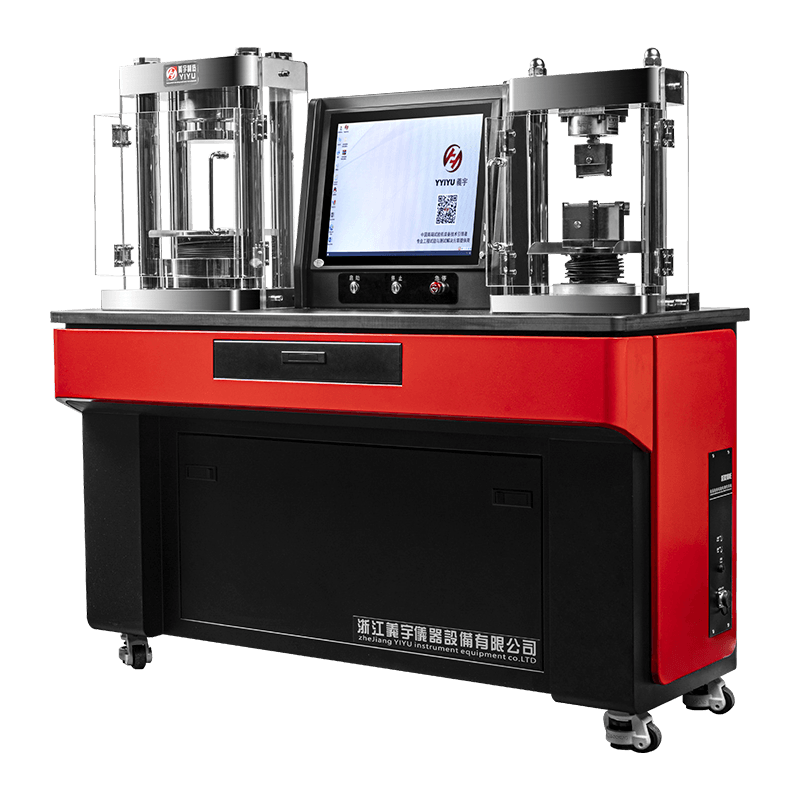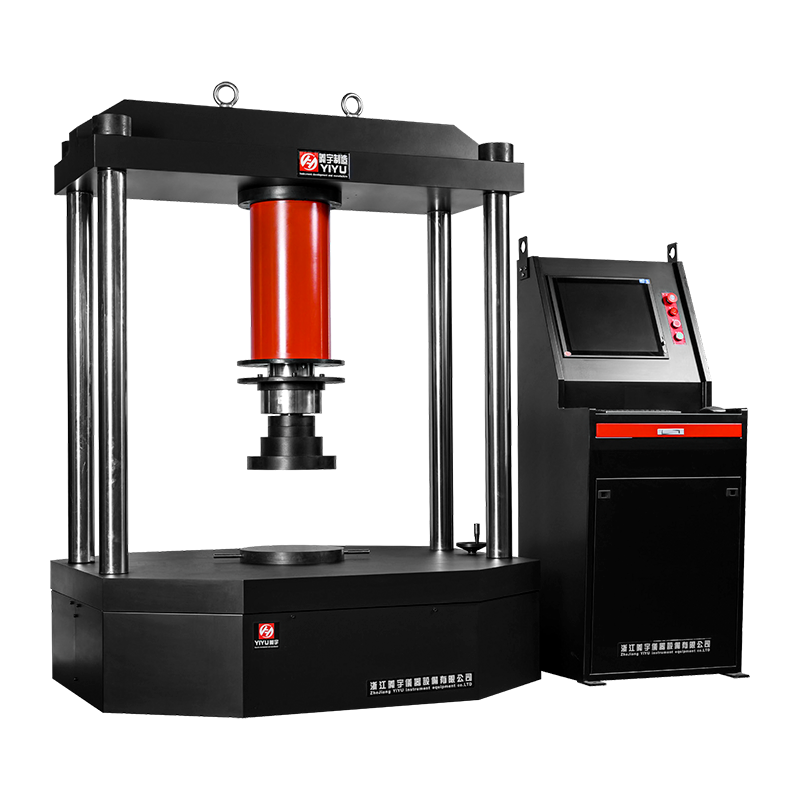In industries where safety, durability, and performance are non-negotiable, testing high-performance materials is not just a formality—it's a critical step to ensure products meet the highest standards. Hydraulic Universal Testing Machines play a central role in this process, providing the precise control, accuracy, and versatility required for testing materials that will be exposed to extreme conditions. From aerospace to automotive, and even medical devices, these machines are indispensable in evaluating materials designed to withstand significant stress, pressure, and repeated loads.
What is a Hydraulic Universal Testing Machine?
To fully understand why Hydraulic Universal Testing Machines (HUTMs) are so important, it’s essential to first grasp what these machines are and how they function.
A Hydraulic Universal Testing Machine is a highly versatile testing device used to subject materials to controlled mechanical stresses in order to assess their properties. These machines use hydraulic power to apply tensile (pulling) and compressive (pressing) forces to materials, enabling engineers to evaluate how well a material can perform under different types of stress.
Key characteristics of HUTMs include:
Tensile Testing: Measuring a material’s resistance to stretching.
Compressive Testing: Determining the material’s ability to resist compression or crushing forces.
Fatigue Testing: Evaluating how the material reacts to repeated loading cycles.
Flexural Testing: Assessing the material’s ability to bend without breaking.
These machines are essential for high-performance materials because they provide the accurate, repeatable results needed to ensure that materials will meet the stringent demands of industries like aerospace, automotive, construction, and healthcare.
Why Are Hydraulic Universal Testing Machines Crucial for High-Performance Material Testing?
Replicating Real-World Stress Conditions
High-performance materials are often designed to withstand extreme conditions. Whether it’s an aircraft component subjected to high altitudes and pressure changes or automotive materials that need to endure repeated stress from the road, it’s crucial to ensure they can handle the forces they’ll face in real life.
This is where Hydraulic Universal Testing Machines excel. These machines allow engineers to apply both tensile and compressive forces under controlled conditions to simulate real-world stresses. For example, aerospace engineers use HUTMs to test how materials will behave under the extreme conditions of high-speed flight, while automotive manufacturers assess materials for their ability to endure the repeated forces encountered in braking systems, suspension components, and engine parts.
HUTMs replicate these real-world stresses with precision, ensuring that materials meet the required standards for safety and performance before being used in critical applications. Without such tests, there's no guarantee that materials will perform adequately when exposed to real-world conditions, potentially leading to catastrophic failures.
Precision and Reliability for Critical Applications
In industries such as aerospace, automotive, and construction, failure of a material or component can lead to disaster, from loss of life to immense financial losses. That’s why precision is paramount when testing high-performance materials.
Hydraulic Universal Testing Machines are engineered to deliver high accuracy and reliable performance in every test. These machines are equipped with advanced sensors and digital controls that allow for precise load application and measurement, ensuring that the material undergoes consistent, repeatable testing.
For example, when testing metal alloys used in aircraft wings, even the smallest error in force application can lead to inaccurate results, which may cause engineers to make flawed decisions about material viability. With HUTMs, the testing process is controlled and repeatable, providing engineers with trustworthy data on a material’s ultimate tensile strength, yield point, elastic modulus, and more.
High Load Capacity for Robust Materials
High-performance materials, such as titanium alloys, carbon composites, and advanced polymers, are often designed to withstand significant stresses and high loads. These materials require specialized testing to assess how they perform under extreme forces.
Hydraulic Universal Testing Machines are uniquely suited to these materials because of their high load capacity. Unlike electromechanical testing machines, which can struggle with testing tougher materials, HUTMs use hydraulic force, which allows them to apply much higher loads to the material samples. This is especially important when testing materials used in heavy-duty applications like aerospace or automotive engineering, where the materials need to be tested at maximum load to determine their true strength and resilience.
Without the high load capacity of HUTMs, testing strong materials such as metal alloys or composites would be significantly more difficult, and the results would be far less reliable.
Customizable Testing for Diverse Material Properties
High-performance materials often have a range of properties that need to be tested in various ways. For example, materials used in biomedical applications like implants or prosthetics may require testing for fatigue resistance and biocompatibility, while construction materials like reinforced concrete may require testing for compressive strength and flexural resistance.
The beauty of Hydraulic Universal Testing Machines lies in their customizability. These machines can be configured to conduct multiple types of tests, allowing engineers to evaluate a variety of mechanical properties across different materials. Whether you need to assess tensile strength, compression resistance, or fatigue performance, HUTMs can easily be adjusted to meet the specific requirements of the material you are testing.
For instance, a composite material used in the automotive industry may undergo tensile testing to assess its strength under stretching, compression testing to determine how it behaves under squeezing forces, and fatigue testing to evaluate its durability over repeated stress cycles. HUTMs allow engineers to test multiple properties with one machine, streamlining the material evaluation process.
Comprehensive Data for Material Optimization
Testing high-performance materials isn’t just about understanding whether a material will fail or succeed. It’s also about collecting detailed data that can help engineers optimize the material’s properties for better performance.
Hydraulic Universal Testing Machines collect extensive data on how materials behave under stress. From stress-strain curves to yield strength and ultimate tensile strength, HUTMs provide invaluable insights that can guide the optimization of material composition and manufacturing processes.
With advanced data analysis tools and digital interfaces, HUTMs give engineers the ability to visualize material behavior, identify weaknesses, and make data-driven decisions. This is especially important in industries where material performance must be fine-tuned for specific applications, such as aerospace or medical devices.
Ensuring Safety and Regulatory Compliance
In high-performance applications, materials must not only perform well under stress but also meet stringent safety standards and regulatory requirements. Hydraulic Universal Testing Machines help ensure that materials are tested to meet the necessary certifications and comply with industry regulations.
Whether it’s ASTM standards, ISO certifications, or specific industry requirements, HUTMs are essential tools for verifying that materials are safe and compliant before they are used in products that demand the highest levels of performance and reliability.






